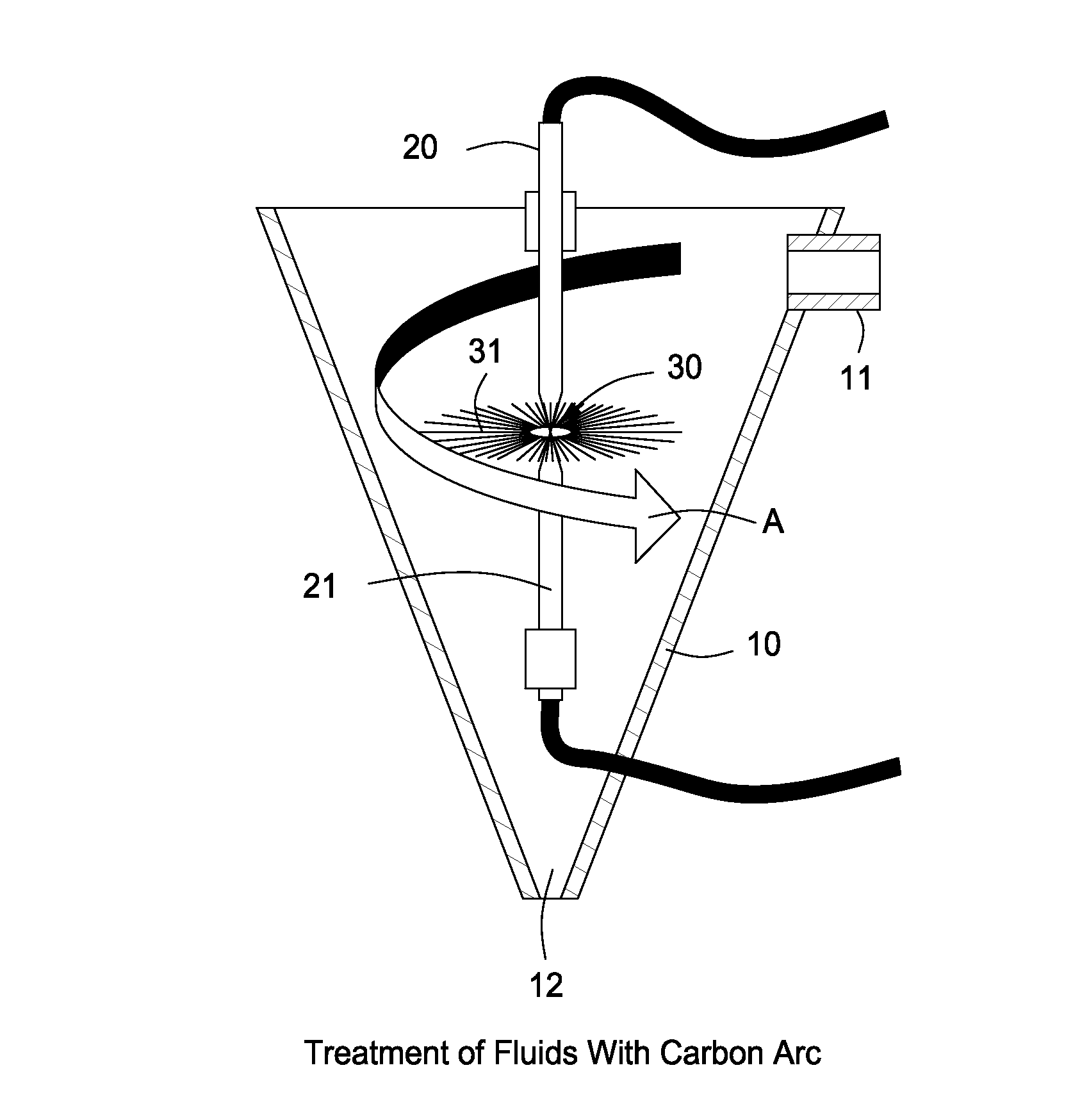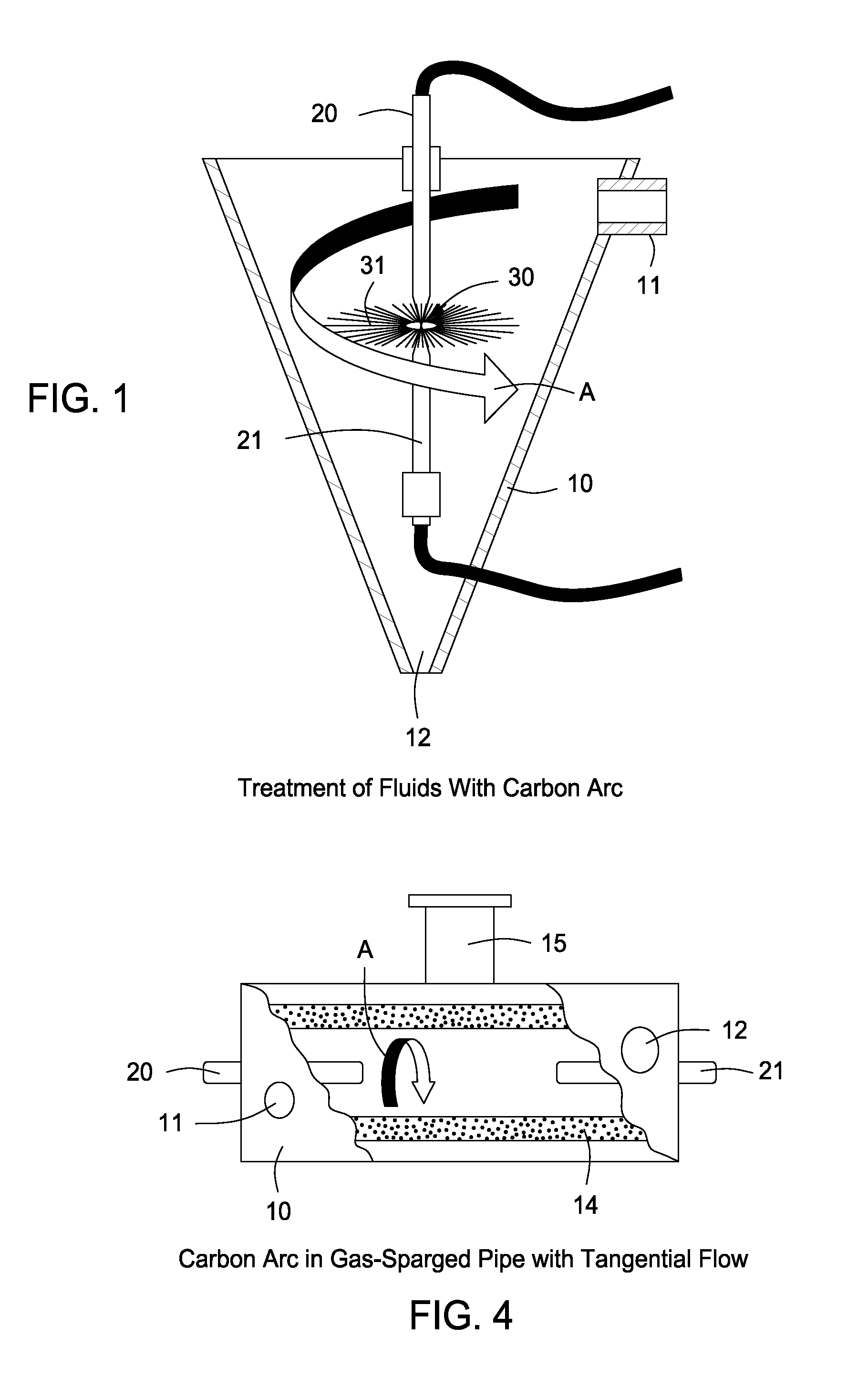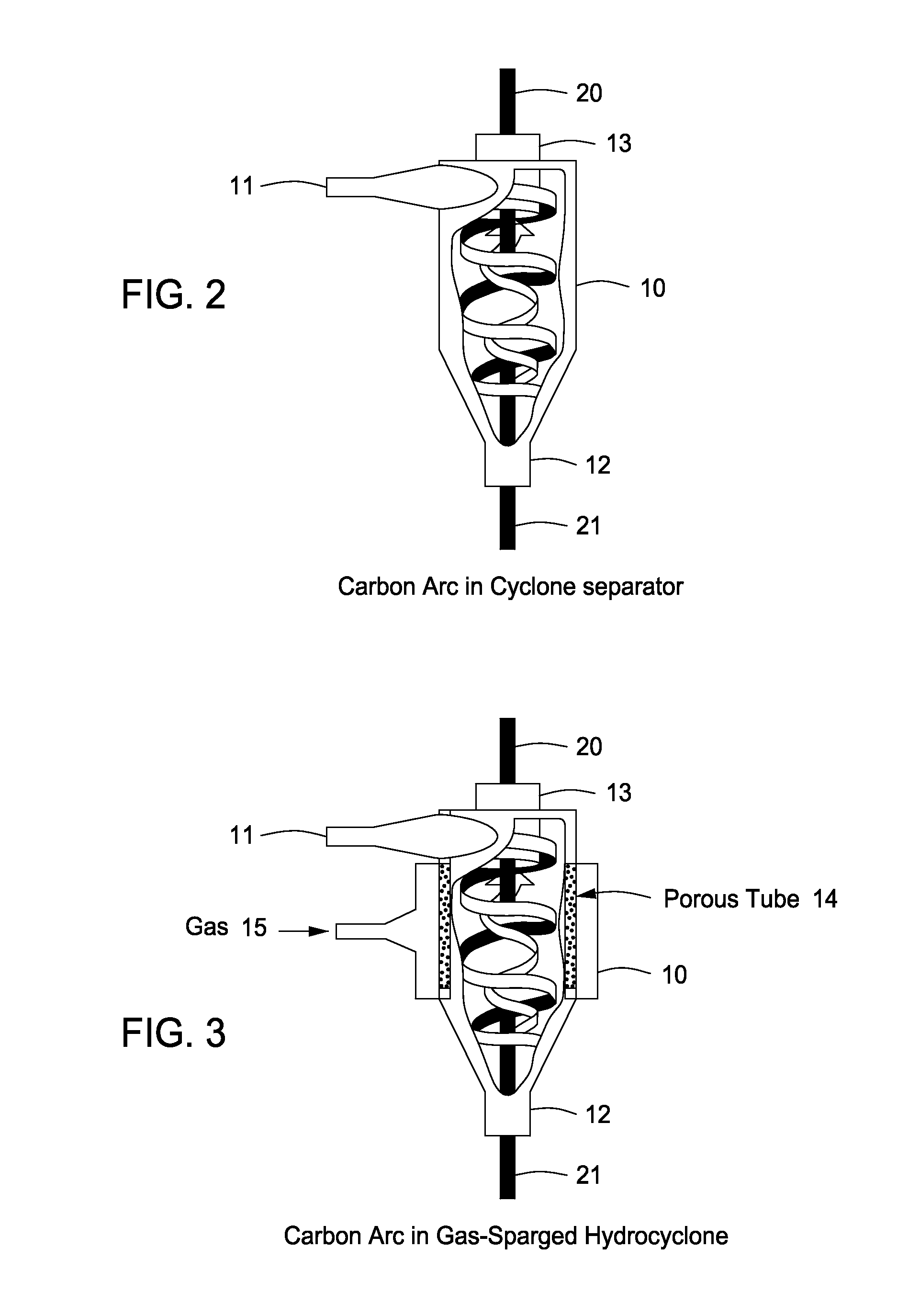Treatment of fluids with wave energy from a carbon arc
a technology of carbon arc and treatment fluid, which is applied in the nature of treatment water, vortex flow apparatus, separation process, etc., can solve the problems of carbon arc lights not being used today for industrial and residential lighting, pollution, and many waterways, and achieves superior wave energy delivery, effective treatment of fluid, and the effect of stripping and destroying volatiles
- Summary
- Abstract
- Description
- Claims
- Application Information
AI Technical Summary
Benefits of technology
Problems solved by technology
Method used
Image
Examples
Embodiment Construction
[0034]Prior art wave energy, in particular EMR, devices and methods, are designed for a given flow rate range. Simply put, the photochemical reactor has a known volume, and based upon the volume of the reactor the number of EMR sources which are needed to effect a reaction over a specified time period is calculated and commonly referred to as residence time (RT). Normally the EMR sources are continuous wave sources such as long linear low-pressure mercury arc lamps, medium pressure mercury lamps and short-arc HgXe lamps. Since these lamps are rated in watts, then the joules / second emitted from the lamps can be multiplied by the RT to specify an effective dose (watts / second / volume) to the treated fluid.
[0035]For example, the amount of radiation necessary to deactivate bacteria is known. Thus, simply by working backwards from this known value, in combination with the average population density of the bacteria, the variable or number of EMR sources and size of the reactor may be easily...
PUM
| Property | Measurement | Unit |
|---|---|---|
| light penetration depth | aaaaa | aaaaa |
| distance | aaaaa | aaaaa |
| distance | aaaaa | aaaaa |
Abstract
Description
Claims
Application Information
 Login to View More
Login to View More - R&D
- Intellectual Property
- Life Sciences
- Materials
- Tech Scout
- Unparalleled Data Quality
- Higher Quality Content
- 60% Fewer Hallucinations
Browse by: Latest US Patents, China's latest patents, Technical Efficacy Thesaurus, Application Domain, Technology Topic, Popular Technical Reports.
© 2025 PatSnap. All rights reserved.Legal|Privacy policy|Modern Slavery Act Transparency Statement|Sitemap|About US| Contact US: help@patsnap.com



